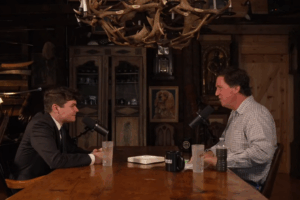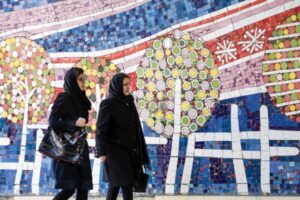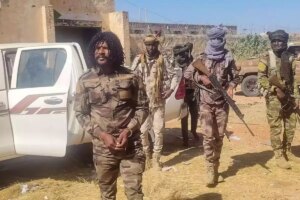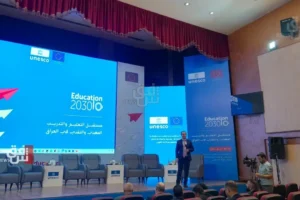
Shafaq News
After months
of political back-and-forth, the issue of Hezbollah’s weapons has become
increasingly central in both domestic Lebanese discourse and international
positioning. With time running short and diplomatic options narrowing, the
debate is intensifying, signaling the potential for renewed escalation.
Limited
Diplomatic Window
Many
observers note that the possibility of removing the Lebanon file from US Syria
envoy Tom Barrack is unlikely to alter Washington’s or Tel Aviv’s longstanding
demands regarding Hezbollah’s disarmament. Speculation surrounding the possible
reappointment of former envoy Morgan Ortagus—known for her vocal support of
Israel—has further fueled concerns about a diminishing diplomatic posture by
the US in handling Lebanon’s complex political and security landscape.
Meanwhile,
Hezbollah remains adamant about retaining its arsenal for the foreseeable
future. In contrast, key international actors, led by the United States,
continue to demand concrete steps toward consolidating state control over all
weapons.
This outlook
is reinforced by a series of high-profile public statements that suggest the
window for political resolution is rapidly closing.
Diverging
Rhetoric: Aoun’s Appeal Versus Hezbollah’s Defiance
The Lebanese
President Joseph Aoun issued a direct appeal to Hezbollah, calling for the
group to hand over its weapons “today rather than tomorrow,” framing the issue
in existential terms, “to liberate occupied territories, rebuild the state,
restore international trust in Lebanon, and prevent further national collapse.”
Aoun emphasized that the sacrifices of Lebanon’s martyrs must not be in vain.
Hezbollah’s
leadership, however, is far from the President’s appeal. The Secretary-General
Naim Qassem reiterated that disarmament is not on the table. He warned against
reducing Lebanon to “an Israeli annex,” regardless of the cost, and instead
emphasized other priorities—including reconstruction efforts following the
Israeli war and halting Israeli attacks.
“End the
aggression and free the prisoners; only then can we have a serious discussion,”
Qassem declared, dismissing any calls—domestic or foreign—for disarmament as
serving “the Israeli project,” and argued that Israel’s ambitions extended
beyond disputed border points, warning that disarming the resistance would pave
the way for Israeli expansionism inside Lebanon.
Despite the
apparent contradiction between Aoun and Hezbollah, political sources suggest
that a quiet but constructive dialogue is ongoing between the two sides. This
conversation is expected to culminate in a government session that will
formally address the state’s monopoly over arms.
Negotiations,
Not Disarmament—For Now
Lebanese
political analyst Qassem Qassir told Shafaq News that disarmament is not
currently on the agenda. He confirmed that negotiations between Hezbollah and
the presidency continue, but stressed that any meaningful discussion about
Hezbollah’s weapons hinges on several non-negotiable conditions: ending Israeli
aggression, withdrawing from Lebanese territory, releasing prisoners, and
initiating reconstruction.
“These are
firm and clear positions,” Qassir said. “Any consideration of limiting arms to
the state can only follow the fulfillment of these demands.”
Qassir also
emphasized that Hezbollah’s heavy missiles and drones constitute “a point of
strength for Lebanon,” forming a strategic deterrent against Israel. “These
capabilities cannot be relinquished without assurances for their protection.”
He further
warned that the US and Israel do not merely seek Hezbollah’s disarmament, but
rather its destruction—whether those weapons are held by the party or the
Lebanese Army. “Israel may use the pretext of disarmament to justify a new war
on Lebanon,” he cautioned.
While
internal discussions have floated the idea of placing Hezbollah’s arms under
unofficial state authority, Qassir concluded that no concrete steps have been
taken by the Lebanese state toward actual disarmament. What is unfolding, he
said, remains confined to preliminary consultations and general understandings.
Israel
Rejects Lebanese Initiative, Heightening Risks of Escalation
With
diplomacy faltering, many in Lebanon fear that an escalation is
inevitable—possibly resembling the recent conflict that ended with a ceasefire
agreement on November 27.
Two
developments in particular are fueling these fears. First is the continued
pattern of Israeli airstrikes and targeted assassinations, concentrated in
southern Lebanon and the Bekaa Valley. Second is a report by Reuters, citing
five diplomatic sources, stating that Israel rejected a proposal from Lebanese
Parliament Speaker Nabih Berri. The proposal had sought a halt to Israeli
airstrikes as a first step toward fully implementing the ceasefire agreement.
Israel has
issued neither confirmation nor denial of the report.
Potential
Political Fallout?
Beyond the
battlefield risks, internal political repercussions also loom. Despite
Hezbollah’s entrenched role in the Lebanese government, ongoing external
pressure and internal divisions over its weapons could reshape the very
structure of governance.
This
unresolved contradiction—between Hezbollah’s strategic doctrine and growing
international insistence on state sovereignty—has yet to reach a breaking
point. But the signals from all sides suggest that the margin for ambiguity is
rapidly narrowing.
Writtn and edited by Shafaq News staff.





